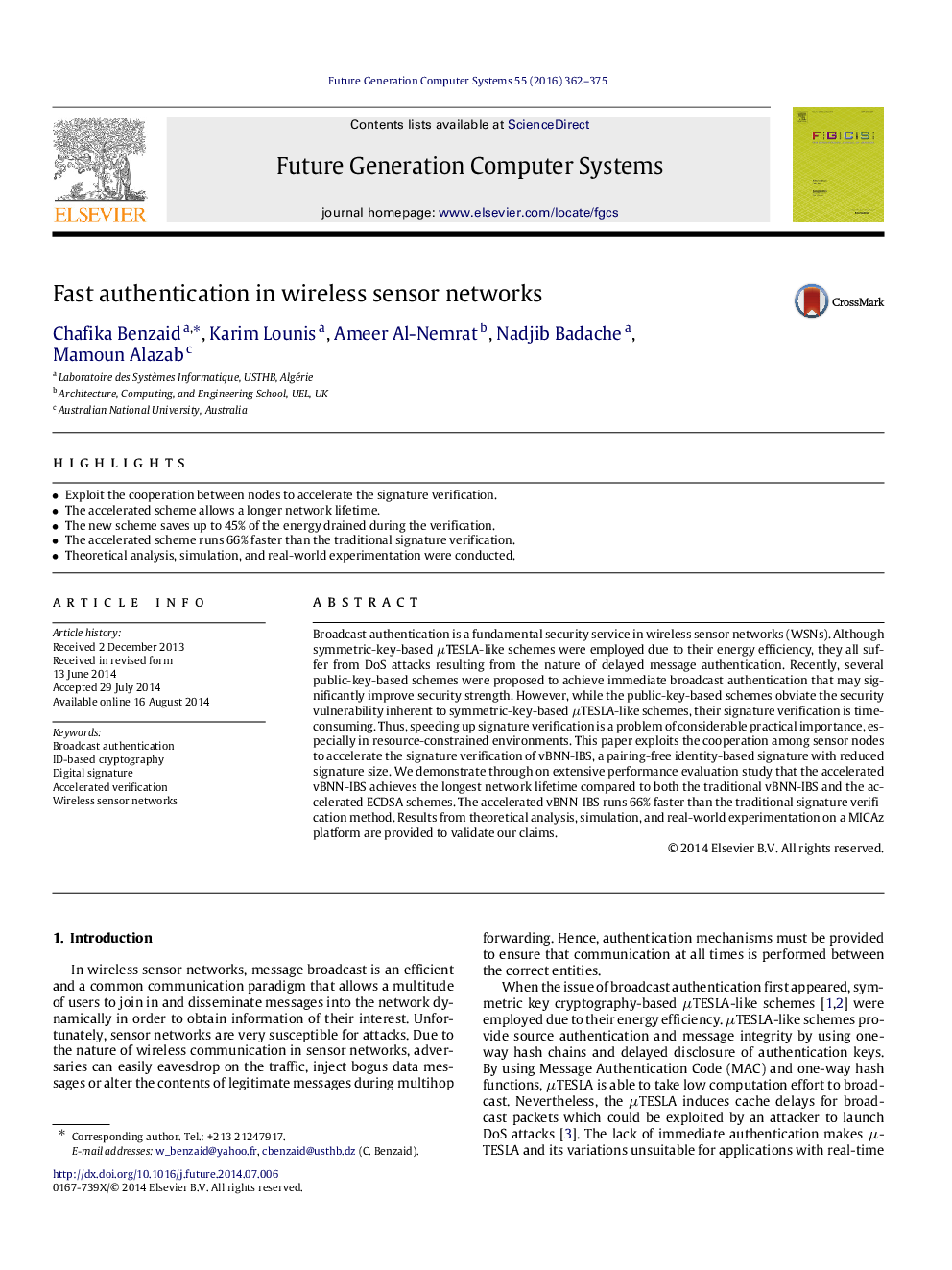| Article ID | Journal | Published Year | Pages | File Type |
|---|---|---|---|---|
| 425584 | Future Generation Computer Systems | 2016 | 14 Pages |
•Exploit the cooperation between nodes to accelerate the signature verification.•The accelerated scheme allows a longer network lifetime.•The new scheme saves up to 45% of the energy drained during the verification.•The accelerated scheme runs 66% faster than the traditional signature verification.•Theoretical analysis, simulation, and real-world experimentation were conducted.
Broadcast authentication is a fundamental security service in wireless sensor networks (WSNs). Although symmetric-key-based μTESLA-like schemes were employed due to their energy efficiency, they all suffer from DoS attacks resulting from the nature of delayed message authentication. Recently, several public-key-based schemes were proposed to achieve immediate broadcast authentication that may significantly improve security strength. However, while the public-key-based schemes obviate the security vulnerability inherent to symmetric-key-based μTESLA-like schemes, their signature verification is time-consuming. Thus, speeding up signature verification is a problem of considerable practical importance, especially in resource-constrained environments. This paper exploits the cooperation among sensor nodes to accelerate the signature verification of vBNN-IBS, a pairing-free identity-based signature with reduced signature size. We demonstrate through on extensive performance evaluation study that the accelerated vBNN-IBS achieves the longest network lifetime compared to both the traditional vBNN-IBS and the accelerated ECDSA schemes. The accelerated vBNN-IBS runs 66%66% faster than the traditional signature verification method. Results from theoretical analysis, simulation, and real-world experimentation on a MICAz platform are provided to validate our claims.
